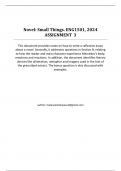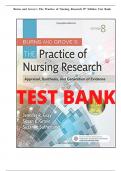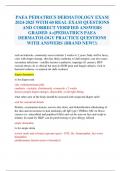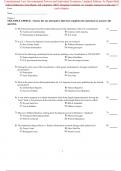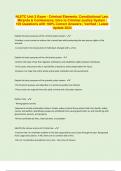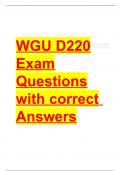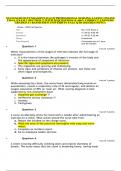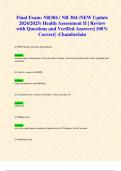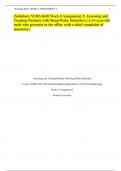Essay
ENG1501. Small Things (novel). 2024 Assignment 3 suggested answers, based on the focalisation of the character Mercedes. Reflective essay and bonus question also described with examples.
- Course
- Institution
This document offer solutions to the novel Small Things by Nthikeng Mohlele. First, it provides notes on how to write a reflective essay. Following that it suggest possible answers to a prescribed extract from the novel, based on how both the reader and main character experience the character Merce...
[Show more]
